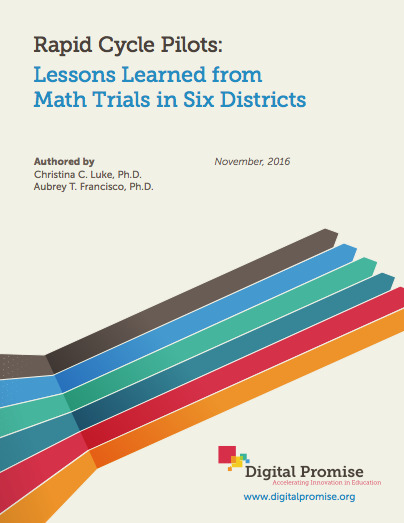

In spring 2016, Digital Promise worked with six League of Innovative Schools districts to conduct pilot studies of two middle school math products. We also supported both companies in designing and conducting the pilot study, and provided formative feedback throughout the process. At the end of the study, district staff reported an improved understanding of the pilot process and the value of conducting pilots before purchasing new ed-tech products. The companies reported that the feedback they received ultimately improved their products.
The following recommendations, based on key findings from this study, can help other districts and product developers conduct successful edtech pilots. These include:
 Download file:
Download file:
We want to hear from you!
Please take this 5-minute survey and help us serve you better.
